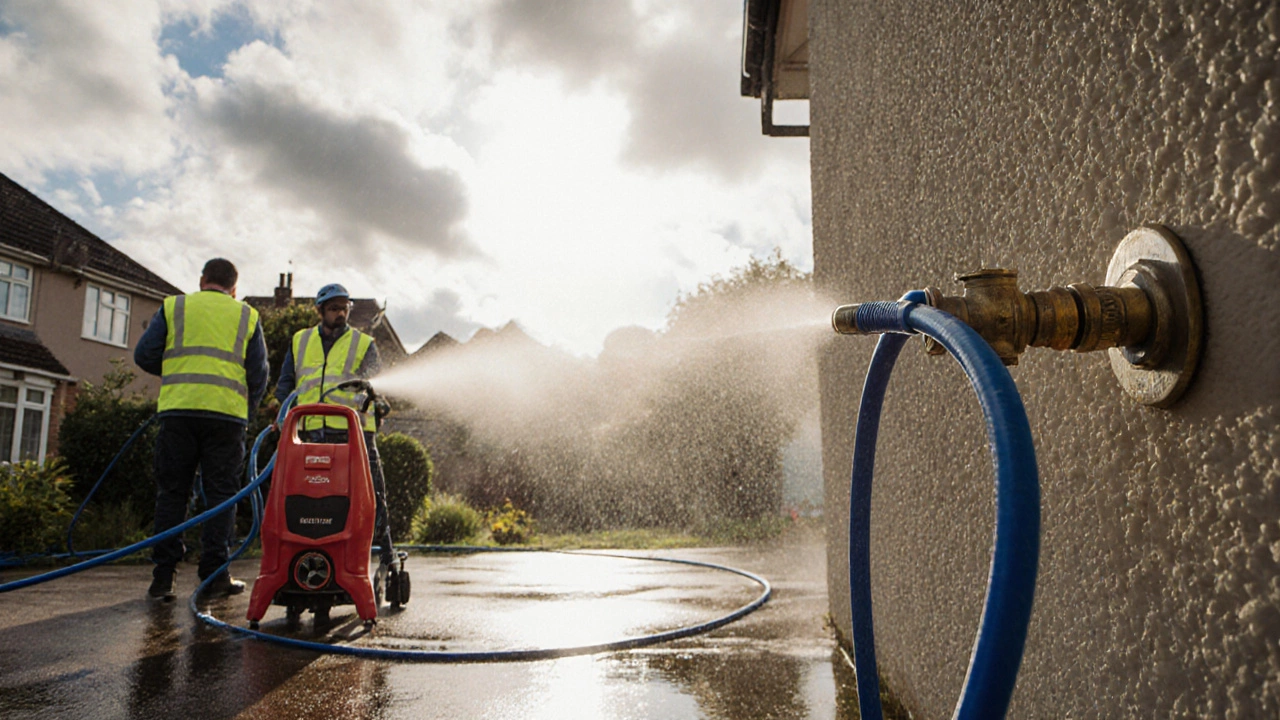Water Regulations UK – What You Need to Know
When working with Water Regulations UK, the collection of laws that control water consumption, discharge and quality across England, Scotland, Wales and Northern Ireland. Also known as UK water law, it shapes everything from everyday house cleaning to commercial pressure washing, high‑pressure water cleaning used on driveways, walls and other exterior surfaces, the enforcement of environmental standards, rules that limit pollutants and protect waterways from harmful runoff, and the management of water usage, the amount of water consumed during cleaning tasks, measured to ensure compliance with permits. Understanding how these pieces fit together is the first step to staying legal, safe and eco‑friendly.
Key Takeaways for Homeowners and Professionals
Most people think water rules only matter for big factories, but the truth is that even a weekend pressure‑washing session can trigger a permit requirement if you exceed local flow limits. The UK Environment Agency sets specific thresholds for discharge volume, and many councils publish online calculators to help you stay under the limit. For example, a typical residential pressure washer using 2.5 gpm (gallons per minute) for 30 minutes will release about 75 gallons – well within most neighborhood caps, but scaling up to a commercial job or using a higher‑PSI machine can quickly breach that number. Water regulations UK also demand that runoff from cleaning solutions be free of harmful chemicals, so biodegradable soaps and proper filtration become more than a green choice; they're a legal one. If you ignore these rules, you risk fines, forced work stoppages, and damage to nearby habitats – outcomes no homeowner or cleaning business wants.
Practical compliance starts with a quick checklist: first, identify the local authority that governs your area (city council, county council or water utility). Second, verify whether your equipment needs a water‑use permit – many small‑scale jobs are exempt, but larger projects usually aren’t. Third, choose cleaning agents that meet the Environmental Standards set out in the Water Framework Directive; look for labels like “phosphate‑free” or “biodegradable”. Fourth, capture runoff whenever possible using a collection tank or sweeper; this not only protects the environment but also gives you records if an inspector asks for proof. Finally, keep a log of each job’s water consumption and chemicals used – a simple spreadsheet can save you from costly paperwork later.
By weaving these steps into your routine, you turn compliance into a habit rather than a headache. Below you’ll find a curated set of articles that dive deeper into pressure washing prep, window cleaning tricks, eco‑friendly pest control, and more – all written with the UK water rules in mind. Whether you’re a DIY homeowner or a professional cleaning service, the insights here will help you keep spaces spotless while staying on the right side of the law.

Do Pressure Washers Use Public Water? Facts About Water Sources and Conservation
Learn where pressure washers get their water, UK regulations, eco‑friendly alternatives, and how to ensure contractors use sustainable water sources.
Read More